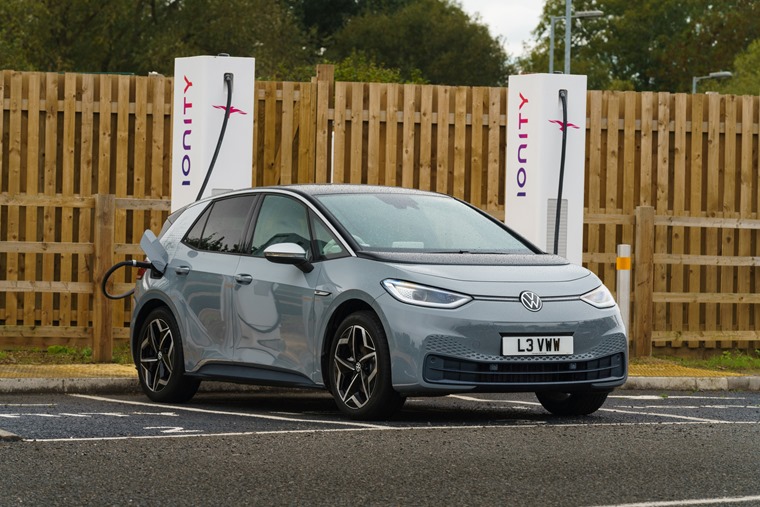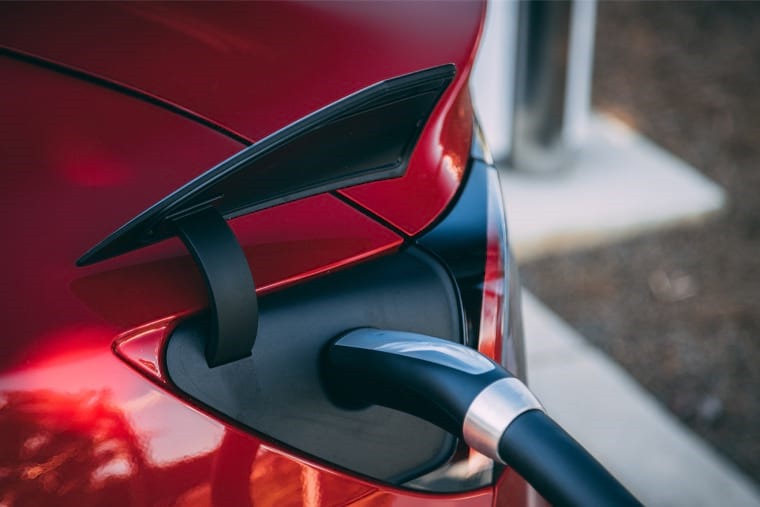What are the tax and financial benefits of driving an electric car?
Back to 'Expert guides'The government recently brought forward the ban on the sale or lease of new petrol and diesel powered cars and vans to 2030. The future is electric, but many people are switching to electric vehicles now. Savvy drivers who lease an EV can benefit from substantial savings on everything from running costs to maintenance and tax.
We got in touch with chartered accountants Harrop Marshall to help you understand all the financial benefits of driving an electric vehicle.

“This government has made some major concessions over the past couple of years to promote electric vehicles.
“Since 2019 company cars can be taxed at 0% Benefit in Kind – and generate a 100% tax credit against profits. This is a massive incentive to switch and the tax relief may not be around forever. As well as the Plug in Car Grant of £3,000 (for cars costing up to £50,000) and the £350 grant towards home chargers, tax relief is a major benefit,” said Harrop Marshall.
Let’s kick off with leasing benefits.
Business electric vehicle leasing
For business leases, the full amount of the rentals can be set against tax for CO2 emissions up to 110 g/km.
- For cars with CO2 in excess of 110 g/km only 85% of the rentals can be deducted.
- VAT on leased vehicles can be reclaimed up to 50% but 100% can be claimed on any maintenance plan.
- You can reclaim 100% of VAT on all other running costs, even if there is private use.
Benefits in Kind (BiK) for electric cars
Benefits in Kind (BiK) are benefits that you receive from your employer, which aren’t included in your salary or wages. Benefits like a company car or private health insurance. BiK rules are “extremely generous” for both electric and hybrid vehicles, according to Harrop Marshall.
If you compare the benefit for cars costing say £30,000 registered after 5 April 2020 where the driver is a 40% taxpayer, the BIK saving for a 40% taxpayer is £4,884 for the electric vs. petrol and £3,776 for the hybrid.
Even for a 20% taxpayer, there is a saving of £2,442 or £203 p/m.

Vehicle Excise Duty
Vehicle Excise Duty (VED), which people often called road tax, is calculated based on the CO2 tailpipe emissions of your vehicle, the list price and the year it was registered in.
- Electric cars are exempt from road tax.
- Hybrid cars are exempt from road tax in the first year and then you will pay a reduced amount over the remaining timeframe.
Capital allowances
“Things get even better when you look at capital allowances. The general rule on capital allowances for cars is 18% of cost pa for cars with CO2 emissions of 51g/km to 110g/km and 6% of cost pa for Co2 emissions of 111g/km upwards. This is calculated on the reducing balance so it would take decades for a car emitting over 110 g/km to receive full allowances against tax! But for an electric car, purchased new the allowance is 100%.
“So, taking a Tesla Model S with a list price of £74,000 that’s a massive credit against corporation tax. Hybrids only get 100% relief if the Co2 emissions are 50 g/km or less and 18% or 6% as for petrol if they are higher.
“Sole traders or partners have different rules for capital allowances which take into account the private use of the vehicle. They also avoid the benefit in kind charge as allowances and motor expenses are claimed net of a private use adjustment,” said Harrop Marshall.
Choosing your fuel type when leasing
Car fuel benefit

Fuel savings is usually one ofthe man reasons for going electric.
“Take a petrol car with a CO2 benefit of 28%. This rate is applied to the annual amount set by the government, which for 2020/21 is £24,500. Therefore, if the employer pays for private fuel the tax cost to the employee will be 28% of £24,500 – i.e. £6,860.
“This will be taxed at their marginal rate – so its £2,744 for a 40% taxpayer. With fuel at £1.20 a litre, that’s a lot of private miles to recoup the tax.
“There is no equivalent fuel charge for electric vehicles, but hybrid cars suffer the same rates as a petrol or diesel car,” said Harrop Marshall.
Salary sacrifice
“Something for companies to consider is the offering of salary sacrifice. This will offset some of their gross pay against the benefit of a fully electric company car. Similar to other savings such as the cycle to work scheme, the sacrifice is before tax and NIC in which employees will save on the purchase of the car.
“This is compounded by the BIK and capital allowance saving above,” concluded Harrop Marshall.